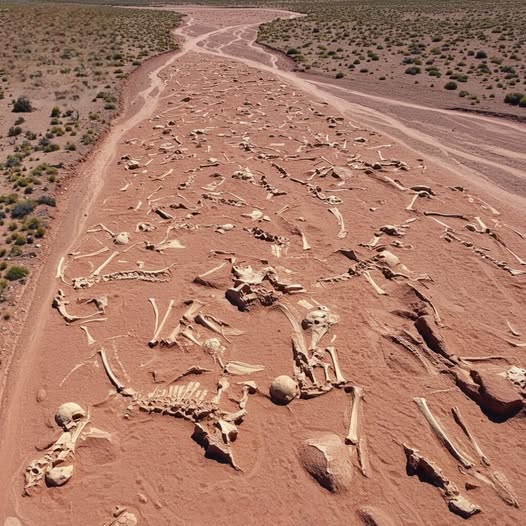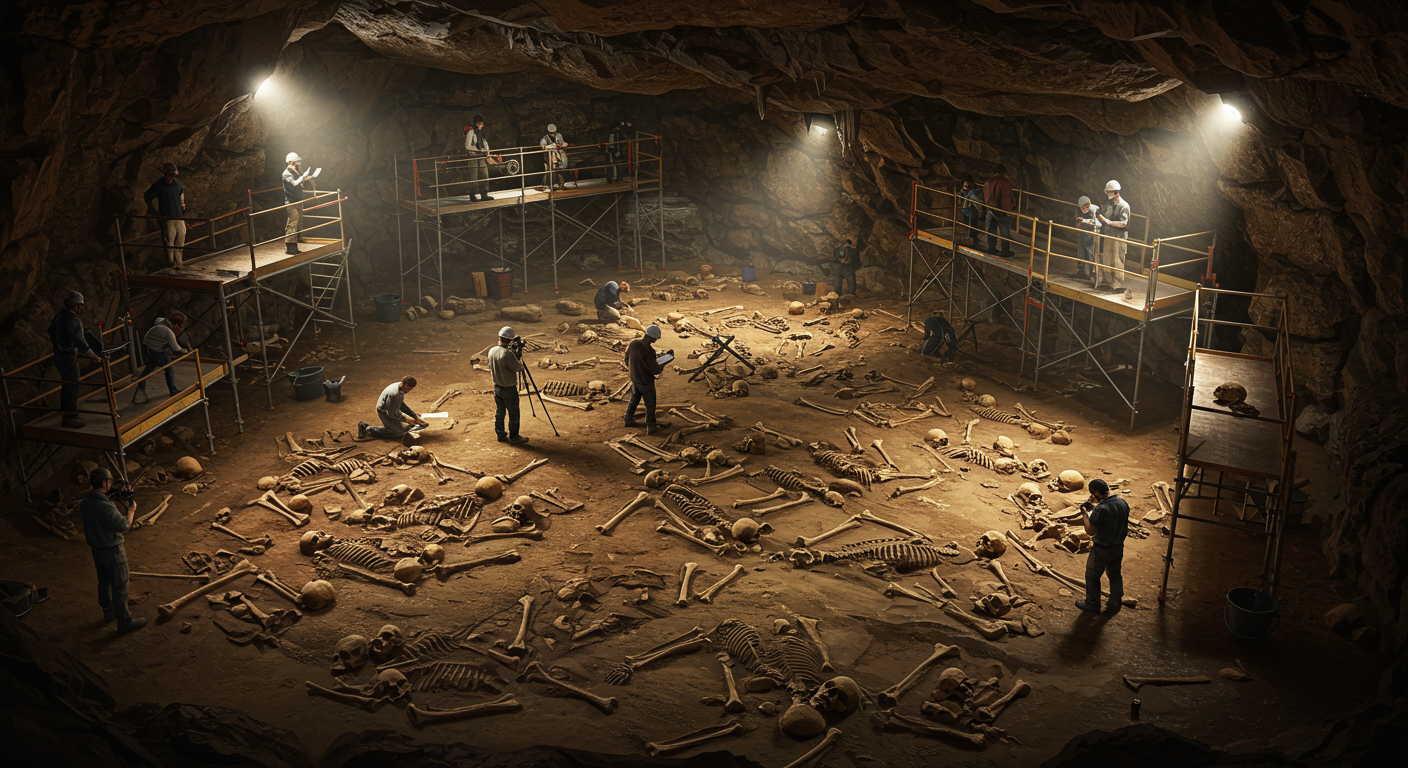In a remote, arid region of Patagonia, a groundbreaking discovery has been made
In a remote, arid region of Patagonia, a groundbreaking discovery has been made. A small, independent team of paleontologists, working in a little-explored canyon, has unearthed the fossil of a new species of long-necked dinosaur. What makes the find so extraordinary is not the dinosaur’s immense size, but the nature of its preservation. The fossil, which has been meticulously excavated, is a female, and beneath her massive skeletal frame, perfectly preserved in the rock, lies a clutch of unhatched eggs.

This is not just a paleontological discovery; it is a behavioral fossil. The position of the dinosaur, with her body carefully curved over the clutch of eggs, is an unmistakable sign of parental care, a behavior rarely, if ever, seen in such a direct and preserved manner. This find challenges the long-held scientific view that these colossal reptiles were solitary and uninterested in their young. Instead, the Patagonian fossil paints a picture of a more complex and social creature, a devoted mother who died shielding her offspring from some ancient cataclysm.

The discovery of this dinosaur, which the team has tentatively named the “Patagonian Mother,” will force a re-evaluation of dinosaur behavior and social structures. It gives us a tangible link to a world that was far more emotionally complex than we had ever imagined. The fossil is a testament to the fact that the earth can still reveal its most intimate secrets, and that sometimes, the greatest discoveries are not of an immense size or power, but of a quiet, protective act that has been locked in stone for millions of years.
